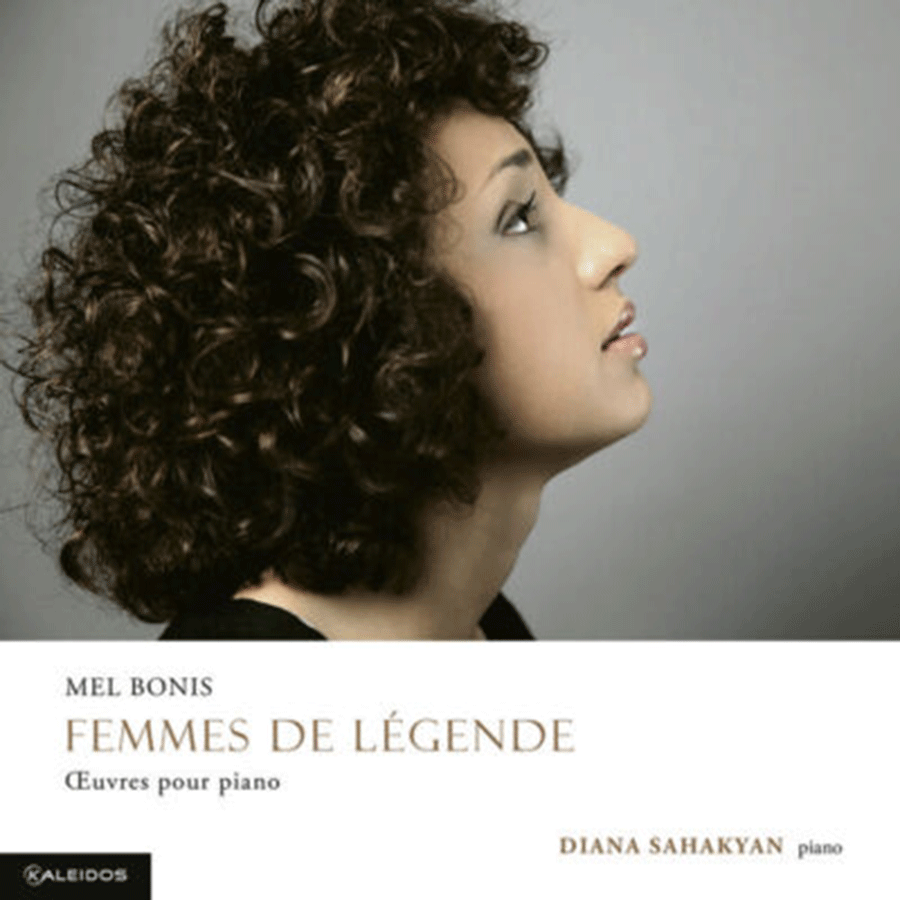by Muriel Mirak-Weissbach
Armenia is famous for its musical culture, and the excellence of musical education. As my husband and I learned during our first visit there several years ago, the teaching staff of the numerous schools and conservatories pride themselves on training world-class musicians. It is almost proverbial to note that in the best orchestras, operas, and music academies anywhere, you can usually find an Armenian.
Diana Sahakyan, who lives and works in Germany, is a particularly interesting artist, and not only as a performer. On October 6 to 8, she hosted a Festival for Women Composers in Frankfurt, a unique initiative featuring works by famous composers, as well as complete discoveries, both from earlier centuries and the contemporary scene.
Born in Yerevan, Sahakyan grew up in musical family and started playing the piano at the age of 6. When she was a teenager, she had made up her mind to dedicate her life to music. She graduated from the Spendiaryan Specialized Music School in Yerevan, then moved to Germany where she continued at the Frankfurt School of Music and Performing Arts with Lev Natochenny, Catherine Vickers, and Oliver Kern. Awarded a scholarship for her achievements, she completed her studies at the Escuela Superior de Mùsica Reina Sofia in Madrid.
Inspiration for the festival initiative, which she launched last year, came from Fanny Hensel (1805-1847), the brilliant pianist and composer who is better known as the sister of Felix Mendelssohn Bartholdy. The talented Fanny, who composed 450 known works, both vocal and instrumental, presided over Sonntagsmusiken, music events held at the family home in Berlin on Sundays, which were attended by up to 300 guests. It is this tradition that Sahakyan seeks to continue with her festivals.
The celebration, which offered three concerts over consecutive evenings, opened with Romances op. 94 by Robert Schumann, the First Piano Trio by his wife Clara Schumann, and the First Piano Trio by Johannes Brahms. On the second evening participants were treated to works by a lesser known composer, Mel (pseudonym for Mélanie) Bonis (1858-1937), and the Piano Quintet in F minor by César Franck. Bonis took piano lessons from Franck, who, recognizing her talent as a musician and composer, facilitated her study at the Paris Conservatory, where she continued as his pupil.
The festival concluded with a Tribute to Sona Talian, a contemporary pianist and composer who graduated from the School of Music and Performing Arts in Frankfurt. A musical prodigy like Sahakyan, she discovered the piano at the age of four, and developed her talents also as a composer. Her concert program featured her own works, combining Armenian folk music, classical, and jazz. There followed Dvorák’s Piano Quintet No. 2, Op. 81 in A major, Sergei Rachmaninoff’s Trio élégiaque No. 1 in G minor. Ensemble musicians in the program were Hans Christian Aivik and Dima Udovychenko, violin, Mino Kawali, viola, and Frederick Winterson, cello.
For many music lovers the festival represented their first encounter with the compositions of three distinctly individual women, from different cultures and epochs. Sahakyan has made recordings of her own performance of works by two of them. “Das Jahr” (The Year) is the title of a CD with Fanny Hensel’s 1841 work, a series of pieces reflecting the months of the year, inspired by a trip to Italy. In Femmes de Légende (Legendary Women), Sahakyan offers a musical portrait of Mel Bonis, with her performance of this composition for piano with its sketches of legendary women.

























































